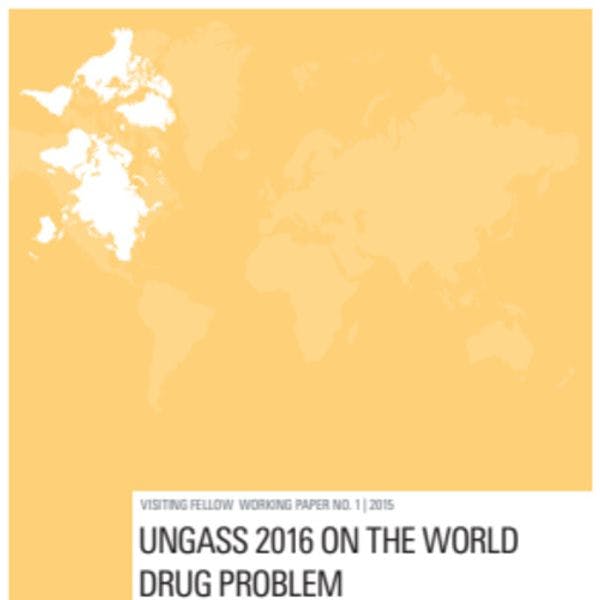Session Extraordinaire de l’Assemblée Générale des Nations Unies sur les problèmes liés à la drogue
La réunion revoit la façon dont les acteurs majeurs de l’ONU et les Organisations Internationales à Genève couvrent les politiques de drogues ainsi que leur contribution actuelle à l’UNGASS ; et suggère des moyens de renforcer leur participation au débat sur les drogues. Pour en savoir plus, en anglais, veuillez lire les informations ci-dessous.
Abonnez-vous à l'Alerte mensuelle de l'IDPC pour recevoir des informations relatives à la politique des drogues.
The United Nations General Assembly (UNGA) will convene a Special Session (UNGASS) on the world drug problem in April 2016, three years ahead of its regular review of the ten-year plan of action to ‘counter’ drugs planned in 2019. Convening this Special Session illustrates the need for new approaches to respond to drug use, for a review of international drug policies and an open dialogue on all aspects relating to drug use. Though the General Assembly named the Commission on Narcotic Drugs as the leading entity for the preparatory process of the UNGASS 2016, it also introduced an innovation in the process by calling for input from all other UN entities.
As the UNGASS approaches, the Geneva-based organisations with mandates on human rights and health have a major role to play in the global debate on drug policies. This working paper reviews how the mandate of the major UN entities and international organisations based in Geneva covers drug policy, their current contribution to the UNGASS process, and suggests pathways to strengthen their involvement in the debate on drugs. The paper focuses on the impact of the current drug control approaches on the work of the World Health Organisation, the Joint United Nations Programme on HIV/AIDS, the Office of the High Commissioner for Human Rights and the Human Rights Council, the International Labour Organisation, the Office of the High Commissioner for Refugees and the Global Fund to fight AIDS, Tuberculosis and Malaria. With the identification and acknowledgement of the shortcomings of the current drug control system on health and human rights, the involvement of the Geneva-based organisations should positively influence the course of the debate around UNGASS 2016 and beyond.
Keep up-to-date with drug policy developments by subscribing to the IDPC Monthly Alert.
